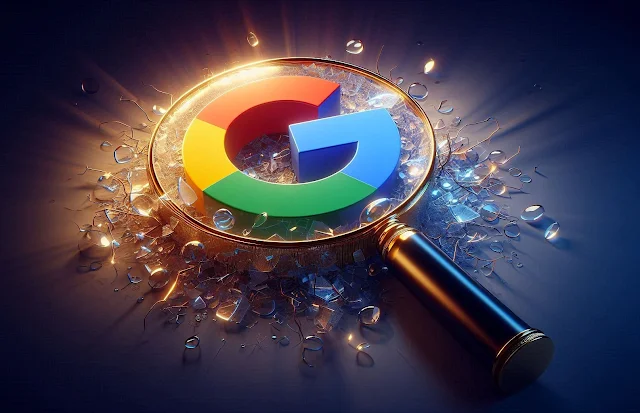Google CEO Sundar Pichai has pushed back against growing concerns that the company's AI-powered search features are hollowing out the internet. Despite ongoing criticism from publishers and industry groups, Google insists that its new search tools are leading to more engagement — not less.
Over the past year, Google has gradually shifted its search platform toward AI-generated summaries and conversational results. This change, now branded as “AI Mode” and “AI Overviews,” offers direct answers instead of just links. That shift has triggered backlash from digital publishers who say their traffic is vanishing and their content is being used without fair return.
Groups representing media organizations argue that the few remaining benefits of Google Search — mainly link-based traffic — are now disappearing. Some describe the new system as an aggressive takeover of content that strips away credit, clicks, and context.
But Google doesn’t see it that way. The company's CEO, in a recent interview, claims that AI features are leading to longer, more detailed queries, and more people are exploring different types of information across the web. According to internal data, Google has recorded query growth even on platforms like Apple’s Safari — where reports recently suggested a dip in user activity for the first time in decades.
In Google's view, the structure of online discovery is evolving, not collapsing. The company argues that it continues to direct significant traffic to outside websites and says it’s indexing more pages than ever before. Google believes its AI-driven model still plays a vital role in connecting users with content creators.
Some in the tech industry aren’t convinced. Critics point to patterns showing user behavior shifting away from clicking links and toward accepting answers directly from Google’s results. They argue that while queries might be increasing, website visits are not — and that’s what truly matters for independent publishers.
Google, however, remains committed to its strategy. The company maintains that AI Mode isn’t designed to replace publishers, but to organize information more effectively. Executives say users are being sent to a broader range of sources than before, especially for topics that benefit from multiple perspectives.
As the debate continues, the company is trying to strike a balance between advancing AI features and keeping the web’s content ecosystem alive. Google says it is aware of its responsibilities and continues to refine how it presents and sources information.
At the same time, the company is betting big on AI. Executives say the technology will drive a new wave of innovation, possibly even surpassing the impact of the early internet. Google expects to see entirely new industries emerge, powered by smarter tools and fresh approaches to how people search, learn, and interact with the digital world.
For now, tensions remain. Publishers want compensation and visibility. Google wants progress and user satisfaction. And in the middle, the web keeps shifting — one query at a time.
Image: DIW-Aigen
Read next: Study Shows Popular AI Chatbots Easily Bypass Safety Filters Using Known Jailbreaks
Over the past year, Google has gradually shifted its search platform toward AI-generated summaries and conversational results. This change, now branded as “AI Mode” and “AI Overviews,” offers direct answers instead of just links. That shift has triggered backlash from digital publishers who say their traffic is vanishing and their content is being used without fair return.
Groups representing media organizations argue that the few remaining benefits of Google Search — mainly link-based traffic — are now disappearing. Some describe the new system as an aggressive takeover of content that strips away credit, clicks, and context.
But Google doesn’t see it that way. The company's CEO, in a recent interview, claims that AI features are leading to longer, more detailed queries, and more people are exploring different types of information across the web. According to internal data, Google has recorded query growth even on platforms like Apple’s Safari — where reports recently suggested a dip in user activity for the first time in decades.
In Google's view, the structure of online discovery is evolving, not collapsing. The company argues that it continues to direct significant traffic to outside websites and says it’s indexing more pages than ever before. Google believes its AI-driven model still plays a vital role in connecting users with content creators.
Some in the tech industry aren’t convinced. Critics point to patterns showing user behavior shifting away from clicking links and toward accepting answers directly from Google’s results. They argue that while queries might be increasing, website visits are not — and that’s what truly matters for independent publishers.
Google, however, remains committed to its strategy. The company maintains that AI Mode isn’t designed to replace publishers, but to organize information more effectively. Executives say users are being sent to a broader range of sources than before, especially for topics that benefit from multiple perspectives.
As the debate continues, the company is trying to strike a balance between advancing AI features and keeping the web’s content ecosystem alive. Google says it is aware of its responsibilities and continues to refine how it presents and sources information.
At the same time, the company is betting big on AI. Executives say the technology will drive a new wave of innovation, possibly even surpassing the impact of the early internet. Google expects to see entirely new industries emerge, powered by smarter tools and fresh approaches to how people search, learn, and interact with the digital world.
For now, tensions remain. Publishers want compensation and visibility. Google wants progress and user satisfaction. And in the middle, the web keeps shifting — one query at a time.
Image: DIW-Aigen
Read next: Study Shows Popular AI Chatbots Easily Bypass Safety Filters Using Known Jailbreaks

